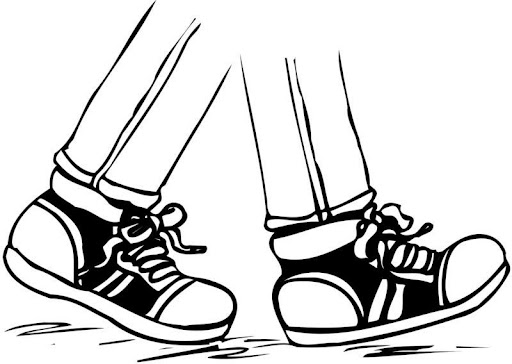Historic Organs of Alsace

Invitation
These are unprecedented times, with much uncertainty for all of us. Even so, despite the 2020 tour cancelation, I want to be optimistic about 2022. Since so much planning had been undertaken for the Spring 2020 tour, I'd like to take this opportunity to re-invite you for that same Adventure in Alsace for the coming year.
The Alsacian region on the west bank of the Upper Rhine has been in an active cultural dynamic since the establishment of a wine-making industry there by the Romans in 58 BC. Since then, through the rules of Clovis and Lothar, Charles the Bald and Louis the German, and later as a result of realignments during the Holy Roman Empire, the culture has existed in a lively tension between German and French influences which happily now advantageously coexist in a balanced blend.
Certainly we all benefitted from the decision of Andreas Silbermann (1678-1734) to leave his native Saxony and learn the craft of organ building in Alsace, where his instruments represent a canny cohabitation of French éclat and German gravitas. Some of this style was transferred by his younger brother and apprentice Gottfried (1683-1753) when he returned home to work for the Saxon king, building stellar instruments quite unlike the central-German norm (which some of you may have seen and heard during our most recent PIPEDREAMS Tour).
This tension resurfaced at the turn of the twentieth century when Emile Rupp, a student of Widor and organist at St. Paul’s Church in Strasbourg, entered into a heated debate with Adolphe Gessner, organist of the garrison church, St. Maurice, over the relative quality of the ‘new’ organs of the day (by primarily German builders) as compared with the ‘vintage’ French-leaning instruments from Silbermann and his son. Since these Silbermann organs also proved themselves as excellent vehicles for the music of Bach, it was not long before Albert Schweitzer, a native Alsacian from Gunsbach, joined in the fray, and the ‘organ reform’ movement was begun. Perhaps you will be able to join me over a glass of Alsacian wine to discuss the distinct qualities of German and French instruments, the relative merits of historicity and progress, and the delight we all should celebrate in differences. With hopes that the uncertainties of 2020 and 2021 will be clarified in 2022, I hope you can come along on our revived journey…an amazing Alsacian Adventure is guaranteed!
- J. Michael Barone
Alsace Region
The Alsace region along the Rhine River border between France and Germany has been the subject of a centuries-long tug of war between the two countries and is all the more exciting and beautiful for it. The sense of cross-pollination surfaces in the architecture, the language, the arts, the cuisine, the wine, and of course, the organs. Strasbourg, Colmar and Mulhouse are the notable cities, and they are embraced by quaint villages of brightly painted, steep-roofed half-timbered houses. In economic terms, Alsace is part of the Rhine valley corridor, one of the most important trading routes in Europe since the Middle Ages. Consequently, its economic activity has always depended as much on its Germanic neighbors as on links with other parts of France, and as a result the region has long been one of the most prosperous in France.
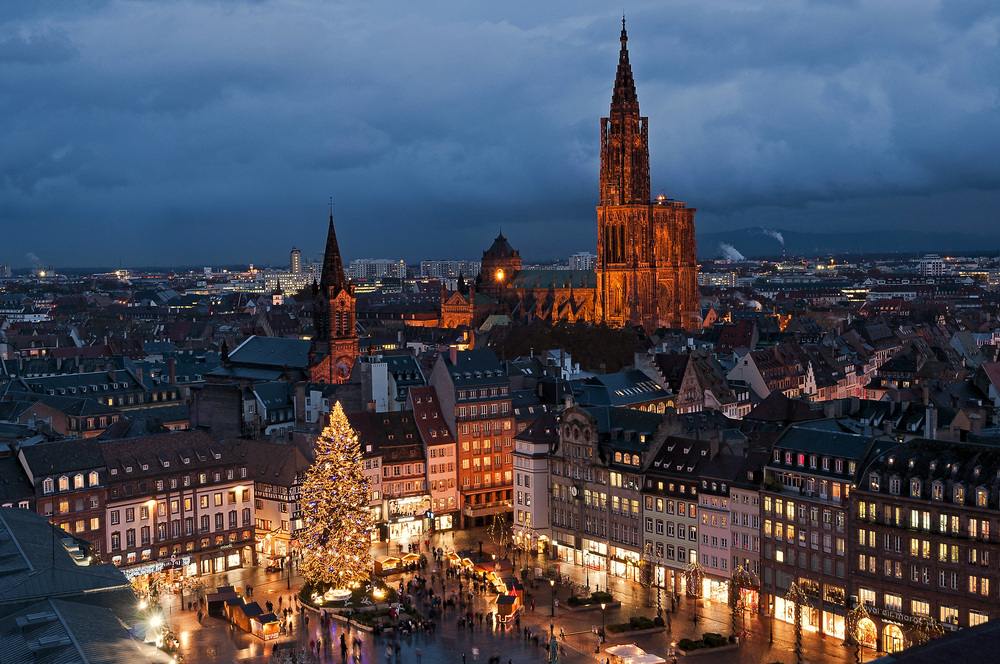
Strasbourg
Strasbourg is the formal seat of the European Parliament and the capital of Alsace. The city is home to the Gothic Cathedral Notre-Dame de Strasbourg with its animated astronomical clock and has one of Europe’s largest medieval quarters. In Grand Île and Petite France, cobbled streets and canals weave between crooked, timber-framed houses that have survived for hundreds of years. The Grande Île was the first city center to be classified entirely as a World Heritage Site by UNESCO. Strasbourg is the ninth largest city of France with nearly half a million inhabitants in a metropolitan area spanning across the river into the German city of Kehl, on the eastern bank of the Rhine. The city itself is the seat of the Council of Europe, the European Court of Human Rights, the European Ombudsman, the Eurocorps, the European Audiovisual Observatory and, of course, the European Parliament (which also holds sessions in Brussels). Needless to say, this high-toned presence in Europe has given the city a vibrant cultural life to match.
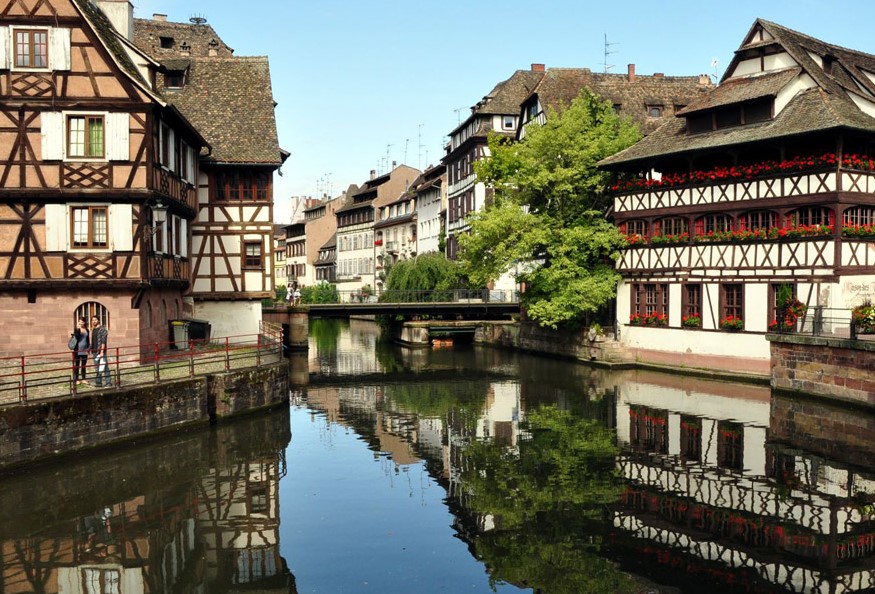
Mulhouse
The industrial powerhouse of Mulhouse is situated between the Rhine River and the Vosges mountains, at the meeting point of three European countries: France, Germany and Switzerland. Thanks to its distinctive historical buildings, from the medieval old French city to the 19th-century industrial boom, Mulhouse was the first Alsatian city designated as a “Ville d'Art et d'Histoire” (City of Art and History), a label of excellence for its unique heritage. Mulhouse is most famous for its fabrics, a heritage celebrated at Christmas when the historic Place de la Réunion is draped in colorful cloth.
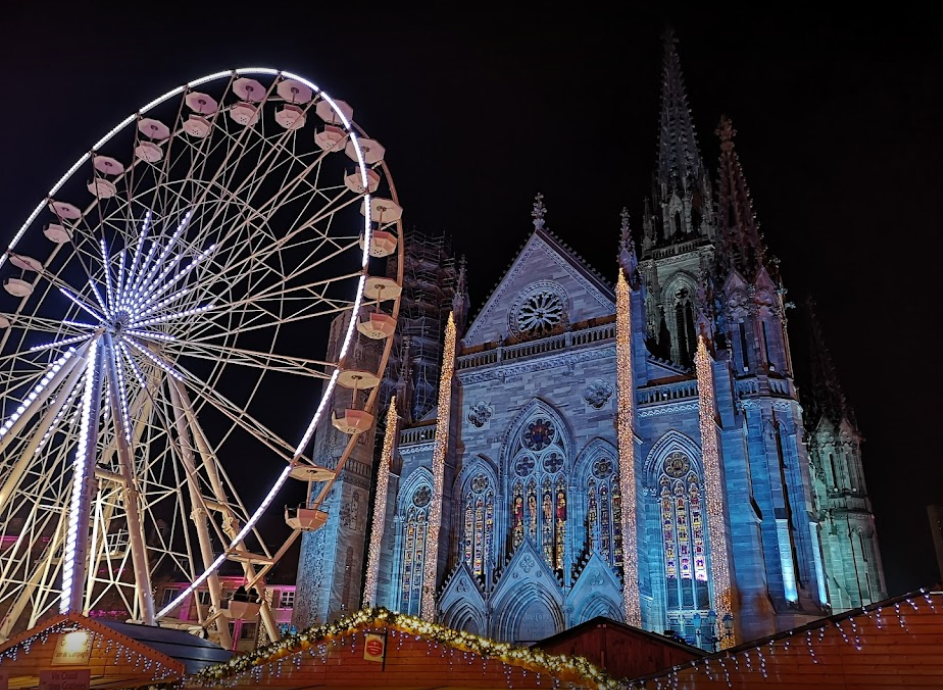
Colmar
Nestled among vineyards, Colmar’s traditional houses, canals, floral displays, amazing cuisine, famous wines, and charming accommodation make it an outstanding microcosm of Alsace - showcasing its lifestyle, conviviality and hospitality. Despite a population of nearly 70,000, Colmar retains a ‘country town’ atmosphere which contributes so much to its charm. Aside from the lavishness of Alsatian wine (mostly whites in a Germanic tradition), Colmar is also renowned for its superbly preserved old town, adorned with timber-framed wood houses that reflect an exceptional blend of Germanic and French architecture.

Your Hosts
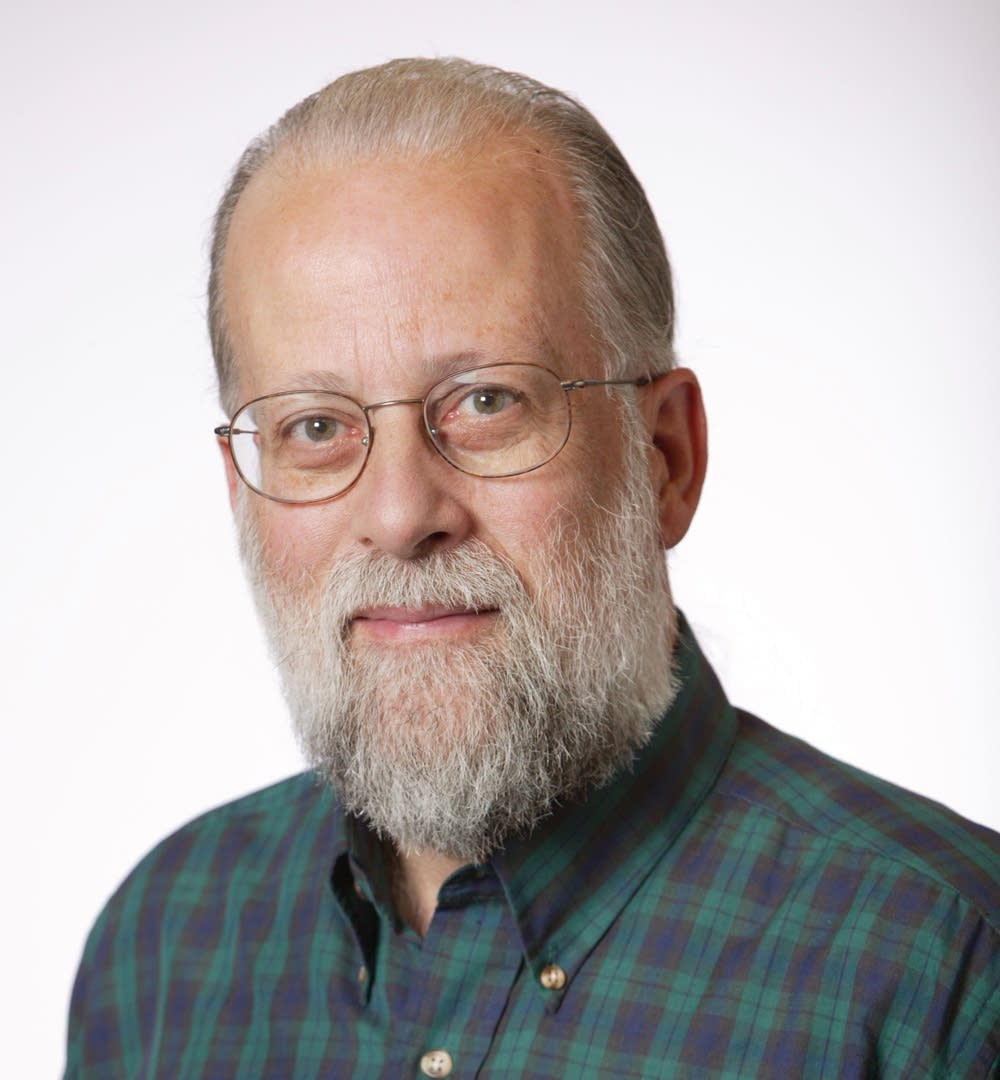
MICHAEL BARONE is a well-known voice on public radio as host for the national broadcasts of American Public Media’s Pipedreams, which celebrated its 35th anniversary in 2017. He came to Minnesota Public Radio in 1968, served as the system’s music director through 1993, and continues as Senior Executive Producer and the longest-tenured of any present MPR/APM staff. Barone is a graduate (B.M. in Music History) of the Oberlin Conservatory in Ohio, and an internationally known advocate for the pipe organ. He served as President of the Organ Historical Society and is co-founder of the Chamber Music Society of Saint Cloud. He received the President’s Award from the American Guild of Organists (1996), the OHS Distinguished Service Award (1997), and the Deems Taylor Broadcast Award from the American Society of Composers, Authors and Publishers (2001), and was inducted into the Minnesota Music Hall of Fame (2002) for his contributions to the musical community at large and to organ music in particular. He was consultant on the Walt Disney Concert Hall organ project and is programming advisor to Philadelphia’s Kimmel Center/Verizon Hall organ series.
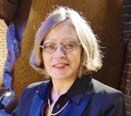
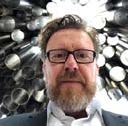
SATURDAY, MAY 7
SUNDAY, MAY 8

MONDAY, MAY 9
TUESDAY, MAY 10
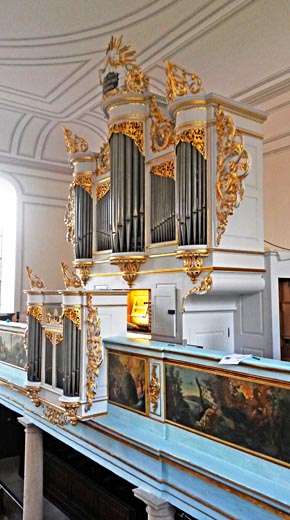
Silbermann organ in the Church of St. Aurélie in Strasbourg WEDNESDAY, MAY 11
THURSDAY, MAY 12
FRIDAY, MAY 13
SATURDAY, MAY 14
SUNDAY, MAY 15
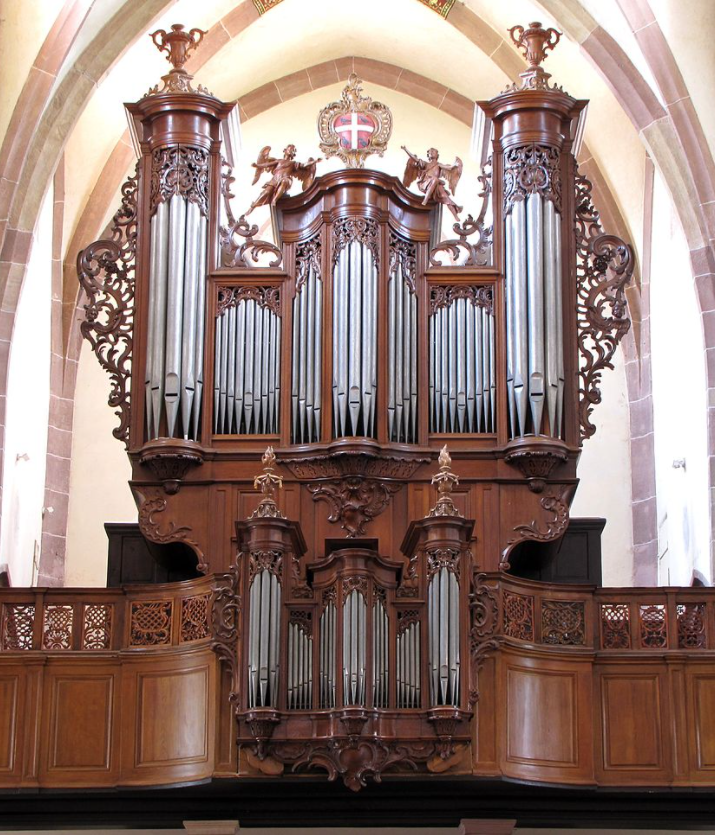
Silbermann organ in the Church of Saint Maurice, Soultz
MONDAY, MAY 16
TUESDAY, MAY 17
WEDNESDAY, MAY 18
THURSDAY, MAY 19
FRIDAY, MAY 20
SATURDAY, MAY 21
